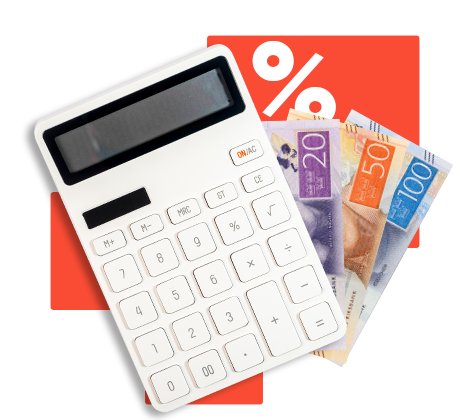Hire & Pay Employees in Sweden 🇸🇪

CapitalStockholm
Currency Swedish Krona (SEK)
LanguagesSwedish, English
GDP per Capita$56,415.60
Payroll FrequencyMonthly
Employer Tax31.42%
Overview
Sweden’s advanced, innovative, and dynamic economy is ranked 4th in the IMD World Competitiveness Yearbook, showcasing its exceptional infrastructure, stable institutions, and productive workforce. As per the WEF, Sweden provides unmatched living conditions and social protections, establishing itself as one of the world’s premier destinations for both living and conducting business.
The presence of innovative and technologically advanced industries, particularly in IT, renewable energy, and life sciences, presents exciting career prospects.
Sweden’s supportive work environment, dedication to employee well-being, and flourishing job market make it an enticing destination for professionals seeking fresh challenges and rewarding careers.
Hiring in Sweden presents unique obstacles that must be overcome, including strict adherence to equal opportunity guidelines, comprehension of intricate labor laws, overcoming language barriers, and competing for highly skilled individuals.
Successfully addressing these challenges necessitates skillful navigation of anti-discrimination legislation, comprehensive understanding of employment regulations, investment in language assistance, and offering competitive compensation packages while fostering workplaces that prioritize continuous learning and development.
Punctuality and organization hold great importance in Swedish business culture, as they are considered essential traits. Being late is considered impolite, and it is customary to provide at least two weeks’ advance notice when arranging a business meeting. Unlike other cultures, small talk is not common at the beginning of meetings in Sweden.
Employment Contracts in Sweden
Minimum Wages & Salaries
Sweden does not have an officially mandated minimum wage. Instead, an agreement that factors age, skill level, and years of experience to determine the appropriate minimum wage for individuals.
Probation period
The probationary period for employment typically lasts for a maximum of 6 months and may differ from one company to another. This applies to both permanent and fixed-term work contracts.
Severance Pay
Severance pay is not governed by any statutory laws. Nevertheless, if an employee is terminated without notice, the employer is obligated to provide severance pay.
Termination Requirements
In Sweden, it is mandatory for both employers and employees to give notice before terminating the employment relationship. Employees are required to provide at least one month’s notice, although this duration can be altered based on individual or collective agreements.
On the other hand, employers may have to give up to six months’ notice depending on the employee’s length of service. However, it is important to note that individual employment contracts may allow for even longer notice periods. Unlike certain countries, Sweden does not have any laws that require severance payments.
Nevertheless, employees may still be entitled to receive them through specific provisions outlined in their employment agreements, collective bargaining agreements, or separation agreements. While collective agreements have the authority to modify notice requirements, they cannot override the stipulations mentioned in individual contracts.
Everything you need to hire in Sweden
Leave Policy
Annual Leave:
According to Swedish labor legislation, following 12 consecutive months of employment, workers earn an annual fully compensated leave allowance of 25 working days. Additionally, employees are eligible for 12% of their total yearly wage as vacation remuneration.
Parental & Maternity Leave:
Parental benefits in Sweden comprise maternity, paternity, adoption, and caregiving leaves. Each parent receives 480 days per child or 240 days for a sole parent during this period; the initial 390 days are tied to the worker’s income, followed by 90 days capped at SEK 180 each day.
Sick Leave in Sweden:
Under the Swedish labor act, staff members gain access to 14 days of authorized absence due to short-term disability, receiving 80% compensation from their respective employer. Once the illness surpasses 14 days, personnel may request long-term incapacity coverage via the social security network, Försäkringskassan. After seven days of prolonged absence, proof of health certification becomes mandatory for confirmation by a licensed physician.
Statutory Time Off
A standard Swedish year incorporates 13 government-mandated holidays, supplementary to any statutory leave provisions. Staff partake in these observances independent of allocated time off.
Sweden observes a total of 13 national holidays throughout the year. These include:
- New Year’s Day (January 1)
- Epiphany (January 6)
- Good Friday (which varies each year in April)
- Easter Monday (also varying in April)
- Labor Day (May 1)
- Ascension Day (which fluctuates in May)
- Whit Monday (either in May or June)
- Corpus Christi (June 11)
- Day of German Unity (October 3)
- Day of Reformation (October 31)
- All Saints Day (November 1)
- Christmas Day (December 25)
- St. Stephen’s Day (December 26)
Working hours40 hours per week
Holidays per year 13
Minimum wage per month None
Annual vacation leave (min)25 days
Parental Leave 480 days per child
Competitive Benefits Package in Sweden
Health Insurance
Vision Insurance
Pension or 401(K)
Dental Insurance

Life and Disability Insurance


Payroll & Taxes in Sweden
Payroll Cycle
Employees are paid weekly, bi-monthly, or monthly.
There are no legal requirements to when an employee needs to be paid by, however, it is common to pay employees by the following schedule:
- Monthly – By the 28th to the 30th of the month
- Bi-weekly – Every second week on any agreed day (usually Wednesday or Thursday)
- Bi-monthly – Every 15th and 30th
Overtime Pay:
On a general note, for overtime on weekdays, the pay is 1.5 times the regular pay for the first 3 hours of overtime and, after that, twice the regular pay. On Sundays, the payment is twice the rate of regular pay. These vary depending on the industries and states.


Taxes in Sweden
In Sweden, the taxation system distinguishes between residents and non-residents. To be considered a resident for tax purposes, an individual must either stay in the country continuously for at least six months or have previously been a resident with strong ties to Sweden.
Residents are obligated to pay taxes on their worldwide income, while non-residents are only taxed on income derived from Sweden.
Now, let’s delve into the personal income tax rates in Sweden for the year 2022:
- Up to SEK 540,700: 0% National Income Tax and 32% Municipal Income Tax
- Above SEK 540,700: 20% National Income Tax and 32% Municipal Income Tax
Non-residents working in Sweden for an employer with a permanent establishment in the country are taxed a flat rate of 25%.
Visa and Immigration
Sweden provides a range of work visas designed to meet specific objectives and durations of stays. Employers who wish to hire non-EU citizens should familiarize themselves with the different classifications offered by Sweden’s immigration services. These classifications include:
The Sweden Work Permit (Employer-Sponsored) is intended for employees who have secured jobs with Swedish employers. This is the main work permit required when hiring non-EU foreign workers. The employer takes responsibility for sponsoring the visa application.
The Intra-Company Transfer visa is ideal for transferring employees from companies located outside the EU to the Swedish branch. Applications for this permit must be submitted through the Swedish Migration Agency or nearby embassies/consulates by the employer.
The Business Visa is designed for non-EU nationals who plan to make brief trips to Sweden for conferences or business purposes. This visa remains valid for approximately 90 days.
The Self-Employment Visa is suitable for freelancers, entrepreneurs, and self-employed professionals who wish to stay in Sweden for more than three months. This visa serves as both a residence and work permit and requires approval before traveling to Sweden.
The Working Holiday Visa is targeted towards young adults aged 18-30 from select nations. It allows temporary residency and employment opportunities in Sweden for up to one year.
The EU Blue Card is a unified work and residence authorization issued to highly qualified experts with relevant professional expertise. It grants accessibility across all EU states.









